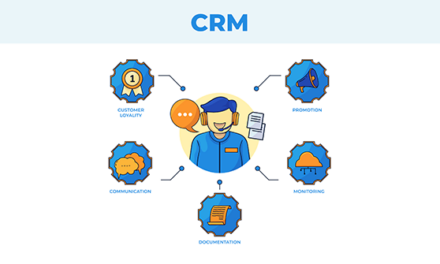Are you a consultant looking to close more deals and expand your client base?
Closing a consulting deal can be challenging, requiring a blend of strategic thinking, communication skills, and salesmanship.
It is when you transform from an advisor to a problem solver and turn a prospect into a paying customer. It requires a unique set of skills that goes beyond just having a great idea or expertise in your field.
But mastering the art of closing deals can be the key to building a successful consulting business and positively impacting your prospect’s businesses.
In this article, we will take you through 5 steps and tips to help you close consulting deals confidently and efficiently.
From understanding the prospect’s needs to presenting a tailored solution persuasively, we will provide actionable tips to help you win more business and achieve your consulting goals.
So, let’s dive in and discover the secrets of successful consulting deal-closers!
5 Steps to close a consulting deal
To successfully close a consulting deal, it is essential to follow a well-defined process that considers the prospect’s needs and concerns.
Below are the five key steps that can help you improve your consulting skills and increase your chances of closing a deal:
Understand the client’s needs and pain points
The first step in closing a consulting deal is understanding the prospect’s needs and pain points.
It involves actively listening to the client, asking the right questions, and identifying their key issues or challenges.
By understanding the client’s needs and pain points, a consultant can better tailor their solution to meet the client’s specific needs. However, it requires strong consulting skills, including communicating effectively, analyzing information, and thinking critically.
Additionally, a CRM (Customer Relationship Management) system can help consultants track client interactions and identify areas where they can add value.
Craft a tailored solution to address the client’s challenges
Based on your information, creating a customized solution that addresses the client’s specific challenges is essential.
Consultants can differentiate themselves from competitors by providing a tailored solution and demonstrating their value to the client.
It involves analyzing the information gathered from the client, conducting research on their industry and competitors, and utilizing the consultant’s expertise to develop a customized solution.
A consultant should focus on creating a practical and effective solution that aligns with the client’s business objectives. It requires strong problem-solving and analytical skills and a deep understanding of the prospect’s business and the industry.
Present the solution in a compelling and persuasive way
Once you have developed a solution, it is essential to present it clearly and persuasively.
It involves using data, case studies, and success stories to illustrate the effectiveness of the proposed solution and build credibility with the client.
A consultant should highlight the proposed solution’s benefits and value and showcase how it can meet the client’s needs and objectives.
By presenting the solution clearly and persuasively, a consultant can demonstrate their expertise and win the prospect’s trust, leading to a successful consulting engagement.
Address any objections or concerns the client may have
Once you have presented your solution, it’s important to prepare for any complaints or concerns the prospect may have.
Listen carefully to their concerns and address them professionally and respectfully. It’s essential to show the client that you understand their perspective and are willing to work with them to find a solution.
Anticipate any objections that may arise and be prepared to address them. By addressing the client’s concerns thoughtfully and respectfully, you can build trust and credibility, which will help you close the deal.
Close the deal by clearly outlining the benefits and value of the proposed solution
Finally, it is vital to clearly outline the benefits and value of the proposed solution to close the deal.
To achieve this, a consultant should emphasize the return on investment for the client, and provide a clear and concise summary of the proposal.
It’s essential to demonstrate how the proposed solution can solve the client’s pain points and challenges and help them achieve their objectives.
By effectively communicating the benefits and value of the proposed solution, a consultant can successfully close the deal and start a long-term relationship with the client.
By following these five steps, consultants can improve their consulting sales funnel, develop effective CRM strategies for consultants, and increase their chances of closing deals. These steps can also be helpful for those who are just starting a consulting business and looking to build their client base.
5 Tips on how to close a client for consulting
Below are the tips that help consultants to improve their chances of winning new clients and building long-lasting relationships.
Build a relationship with the prospect
Building a strong relationship with the prospect is crucial in closing a consulting deal.
It involves establishing trust and rapport with the prospect by showing a genuine interest in their business as well as objectives.
You can achieve this by taking the time to understand their needs, listening to their concerns, and maintaining regular communication throughout the consulting process.
By building a relationship with the client, you can create a sense of partnership and collaboration that can increase the likelihood of closing the deal and pave the way for future engagements.
Understand the decision-making process
To close a consulting deal, it is important to understand the prospect’s decision-making process.
It involves identifying the key decision-makers in the prospect’s organization, their decision-making criteria, and the factors that influence their decisions.
Once you understand the decision-making process, you can tailor your approach as well as the solution to meet the client’s needs and address any concerns or objections they may have.
Understanding the decision-making process also helps identify the appropriate time to present your solution, ensuring that it is presented to the right people at the right time.
Demonstrate your expertise
Demonstrating your expertise is crucial to close a consulting deal. You can showcase your credentials, certifications, experience, and knowledge in the field to build trust with the prospect.
Providing relevant case studies and success stories can also demonstrate your ability to address similar client challenges.
Positioning yourself as an expert in your area of specialization can help you stand out from your competitors. You can achieve this by participating in industry events, writing blogs, publishing whitepapers, and speaking at conferences.
Building a reputation for yourself as a reliable and knowledgeable consultant can lead to more referrals and repeat business in the future.
Be flexible and adaptable
Being flexible and adaptable is a crucial trait in consulting. As a consultant, you must be open to modify your approach and solution to meet the prospect’s changing needs.
It requires a willingness to adjust your communication style to match the prospect’s preferences and demonstrate a willingness to work within the prospect’s budget and timeline.
By being adaptable, you can show the prospect that you are committed to delivering the best possible solution and are willing to go the extra mile to meet their needs.
Follow up and stay engaged
Following up and staying engaged with clients after the consulting engagement is critical to maintaining a positive relationship and creating opportunities for future collaborations.
It is essential to ensure the prospect’s satisfaction and address any potential issues or concerns arising after the engagement.
Regular check-ins can help you stay informed about the prospect’s needs and objectives and provide an opportunity to offer additional value or services.
By keeping the lines of communication open, you can position yourself as a trusted partner and increase the likelihood of repeat business and referrals.
Conclusion
In conclusion, closing a consulting deal requires a strategic approach and well-honed consulting skills.
To be successful in consulting sales, you need to build a relationship of trust with your clients, demonstrate your expertise, understand their decision-making process, and be flexible and adaptable in meeting their changing needs.
By following the tips outlined above, you can close a deal with a client and establish a long-lasting and positive relationship that can lead to future opportunities.
In addition, utilizing a CRM for consultants can help streamline the process and ensure that you stay engaged with your clients and meet their needs effectively.






